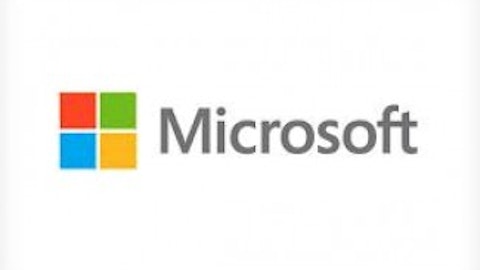I got a fresh upgrade offer from my ISP, Verizon Communications Inc. (NYSE:VZ) FiOS, yesterday. It’s not a bad deal, really. For $10 more per month, I could upgrade my 15 megabit-per-second Internet connection to a 50-megabit account. As Verizon Communications Inc. (NYSE:VZ) puts it, “Because you’re doing more online than ever, you need more speed than ever.” OK, I’m convinced. Pay 15% more for a total of $75 a month, but my connection speed would more than triple.
Or, you know, I could just move to Kansas City. There, I would sign up for Google Inc (NASDAQ:GOOG) Fiber at $70 per month, and enjoy a full gigabit of online bandwidth goodness. That’s nearly 67 times my current bandwidth for $5 more, or 20 times the upgraded Verizon offer for $5 less. How’s that for “more speed than ever,” or a superior value?
Can you hear me now? Good.
You can bet that service providers are starting to feel the heat from Google Inc (NASDAQ:GOOG)’s hyper-competitive plans. Big G started slow, taking nearly three years to move from announcement to the first connections in Kansas City, but it has picked up the pace dramatically. Austin, Texas, got the nod for Fiber services last week, and now the service is jumping to Provo, Utah, as well.

The streets of Provo are about to light up with high-speed fiber-optics. Photo from Provo City’s official website.
The situation in Provo is unique. Google Inc (NASDAQ:GOOG) is rolling out its own fiber-optic cables in Kansas City (in both Kansas and Missouri) and Austin, but Provo already has a citywide fiber network. Google Inc (NASDAQ:GOOG) can simply step in, upgrade the iProvo fiber mesh to gigabit speeds, and start managing the service. The company promises to connect every home and business along the current fiber backbone routes.
Thanks to the existing infrastructure, Google Inc (NASDAQ:GOOG) can offer absolutely free 5-megabit connections for a mere $30 one-time connection fee and will give gigabit hookups to a handful of worthy recipients such as schools, hospitals, and libraries. There’s no word yet on what gigabit accounts will cost for everyone else in Provo, or indeed in Austin, but chances are that it will be comparable to the Kansas City service.
Why not sell this everywhere?
There’s very little technical reason Verizon’s fiber couldn’t offer gigabit speeds to consumers well below the magic $100 monthly price barrier. Some new connection cards on the ISP’s side, maybe a quick connection box in my garage (or perhaps just a software update done from the central office), and I’d be good to go.
Verizon does have a 300-megabit service available, which is at least in the same ZIP code as Google Inc (NASDAQ:GOOG)’s high-speed plan. But I’ll note that Google Inc (NASDAQ:GOOG)’s connection is high-speed both ways, while Verizon’s fastest plan caps upload speeds at 65 megabits — and I’d have to pay $210 a month for Verizon’s most competitive plan.


